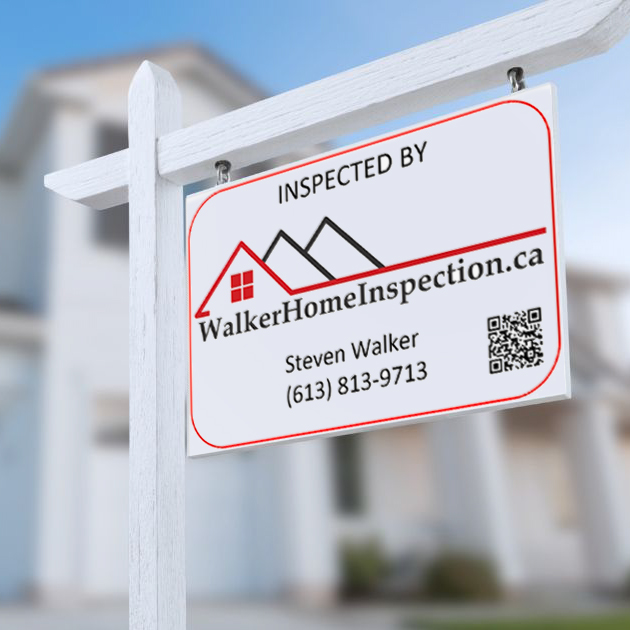
Services
Steven Walker is an accredited National Home Inspector in all home systems including Roofing, Structure, Heating/AC/Heat Pumps, Plumbing, Interior, Insulation, Exterior as well as Communication, Professionalism and Practice; each proven through industry leading training and proctored exams culminating in National Certification.
Serving the Counties of
Northumberland | Hastings | Lennox/Addington | Prince Edward | Frontenac

What’s Included in an Inspection
The inspection is an extensive non-destructive review of all house systems taking approximately 2-1/2 to 3-1/2 hours. All accessible spaces are inspected, from walking on the roof, to crawling in the attic and getting into the crawl space. Exterior and landscaping, major internal systems including electrical systems, panels, wiring & fixtures, heating & cooling systems, plumbing, windows, doors, walls, structural components and foundational stability are all closely inspected and reported.
In addition to Single Family Homes, multiple-dwelling home inspections are available. The inspection is similar to the single family inspection, but with the added feature of additional dwelling units within the building, such as a duplex or triplex. All units are inspected as well as the building. The report will identify each home individually so you know exactly where any deficiencies can be found. Given the additional time required, a partial inspection cost is added. Use the Booking Tool to get a quote and book your inspection.
The Walker Home Inspection Report identifies:

Pre-purchase Home Inspection
As a prospective home buyer, it is wise to assess just how much trust you can place in the seller’s transparency regarding all relevant details about the property. Attaining an impartial and unbiased evaluation of the property’s condition is the best way to be informed before making one of the biggest decisions of your life. My primary objective is to provide you with the knowledge and understanding of the condition of the home, and its major systems, in order to help you make that decision. Our allegiance rests solely with your interests, completely independent of any affiliations with agents or contractors.
A pre-purchase home inspection offers numerous benefits for prospective homebuyers. Firstly, it provides invaluable insights into the overall condition of the property before making a substantial investment. Walker Home Inspection will thoroughly assesses the structural integrity, electrical systems, plumbing, roofing, and other essential components of the house. This detailed examination helps buyers identify any potential issues or hidden defects that might not be apparent during a casual viewing. Armed with this knowledge, purchasers can make informed decisions, negotiate better deals, and budget for any necessary repairs or renovations, saving them from unexpected expenses down the road.
Secondly, a pre-purchase home inspection contributes to peace of mind for the buyer. Knowing that an independent professional has thoroughly inspected the property instills confidence and reduces anxiety about potential surprises after moving in. It allows buyers to enter the transaction with a clear understanding of the property’s strengths and weaknesses, empowering them to negotiate repairs or request the seller to address any major concerns. Ultimately, a pre-purchase home inspection serves as a proactive measure to ensure that the homebuying process is smooth, transparent, and rewarding, offering buyers the confidence and assurance they need to make the right decision for their future home.

Pre-listing Home Inspection
Opting for a pre-listing home inspection offers numerous advantages for sellers looking to put their property on the market. First off, it provides you with a clear understanding of your home’s condition, allowing you to address any potential issues before they become stumbling blocks during negotiations. Armed with this information, you can choose to fix certain problems, ensuring your home is presented in the best possible light and potentially boosting its appeal to potential buyers.
A pre-listing inspection streamlines the selling process. By proactively identifying and rectifying any concerns, you can avoid last-minute surprises that might cause delays or even lead to a deal falling through. This upfront transparency can foster trust between you and potential buyers, making negotiations smoother and instilling confidence that you’re dealing in good faith.
Ultimately, a pre-listing home inspection empowers you to set a fair asking price based on your property’s actual condition, making for a more efficient and successful selling experience.

Post-Purchase Inspection
Getting a post-purchase home inspection is a savvy move for any homeowner. It’s like a second opinion that ensures you’re aware of the true condition of your new property. Even if everything seemed fine during the initial purchase, hidden issues might pop up later. A post-purchase inspection gives you peace of mind, helping you catch any surprises before they turn into major problems. It’s an investment in your home’s long-term well-being and your own financial security.
If a home inspection was completed within the previous 2 years by Walker Home Inspection, a Post-Purchase inspection of the same property is charged at a discounted rate.
